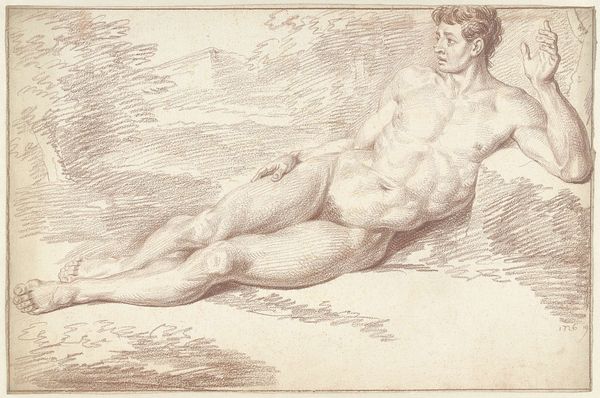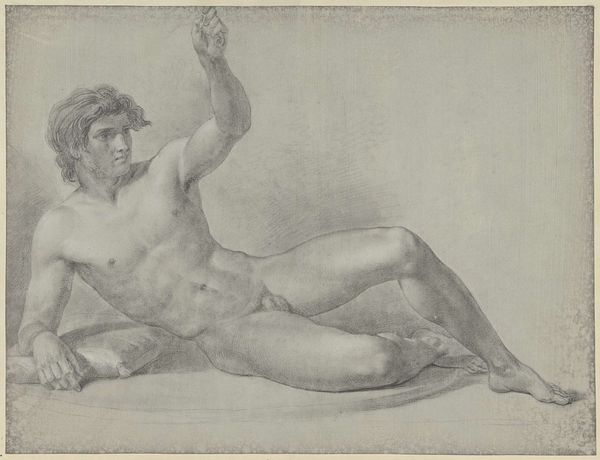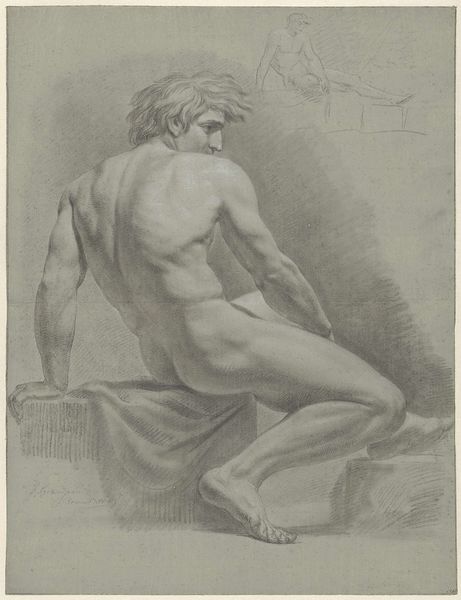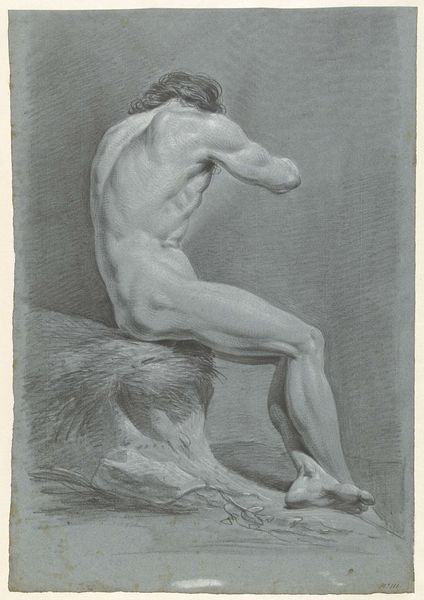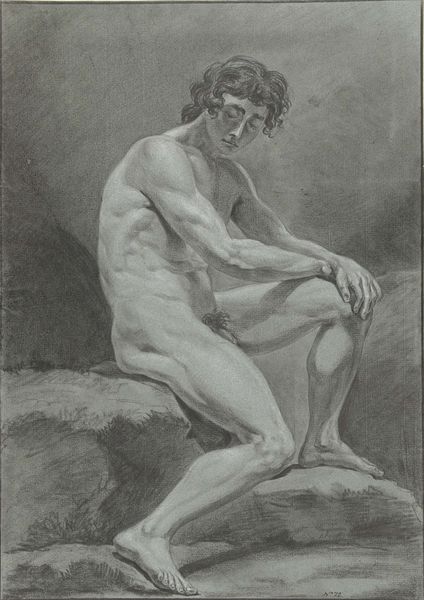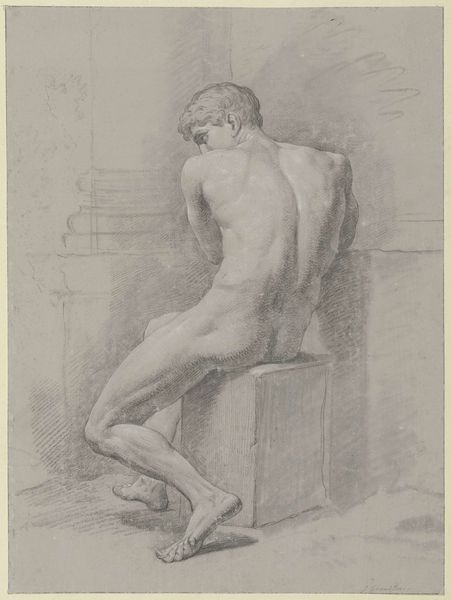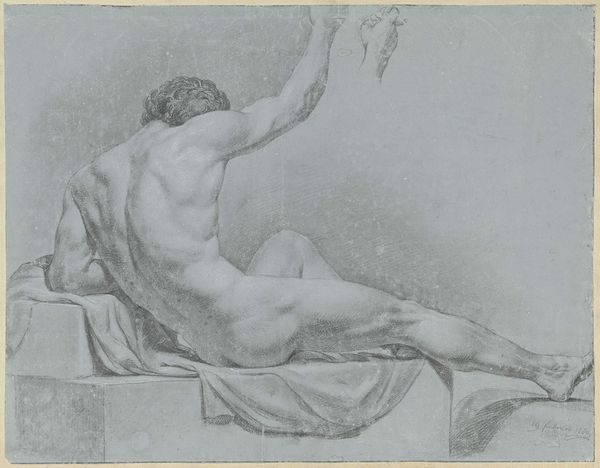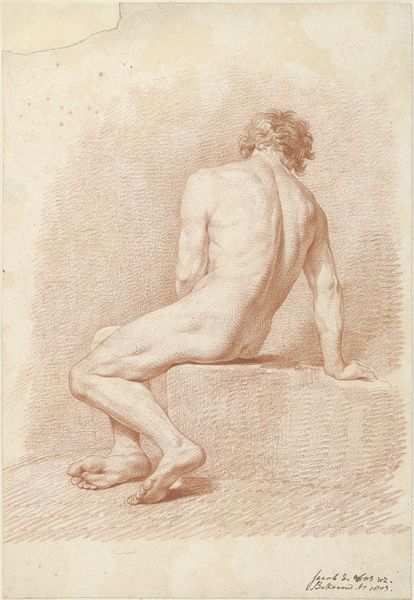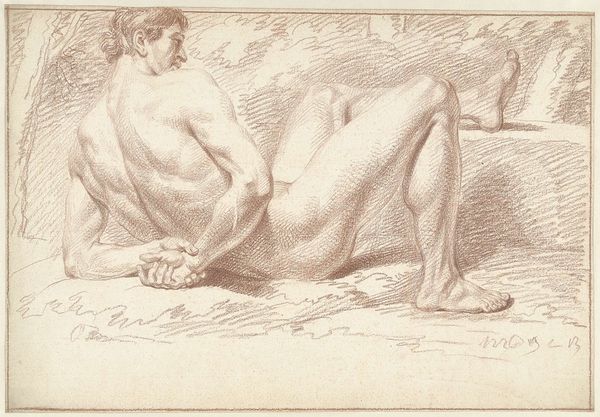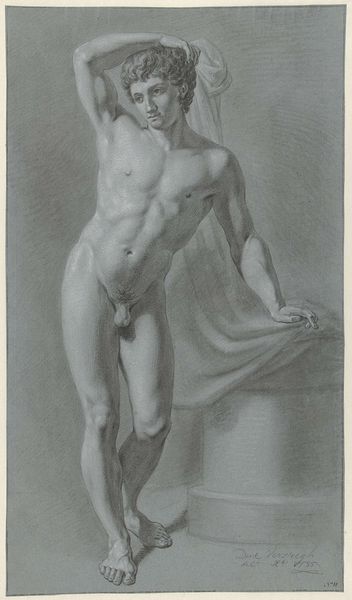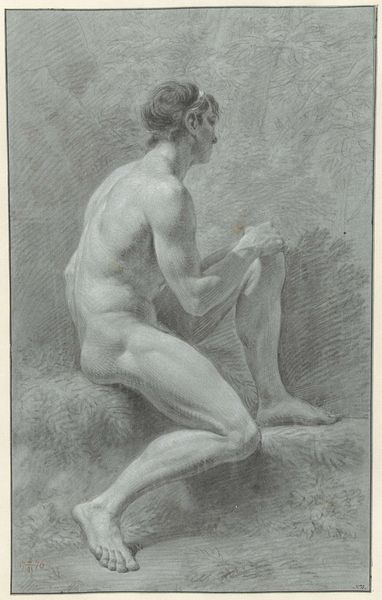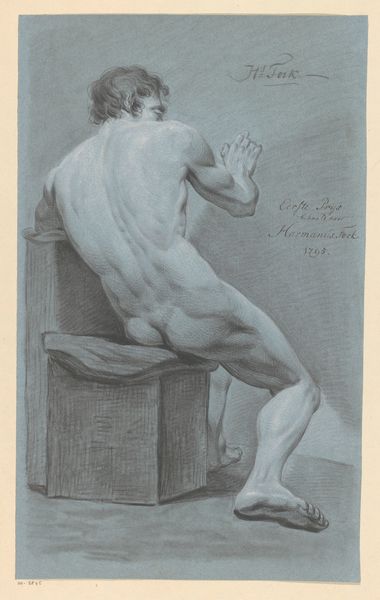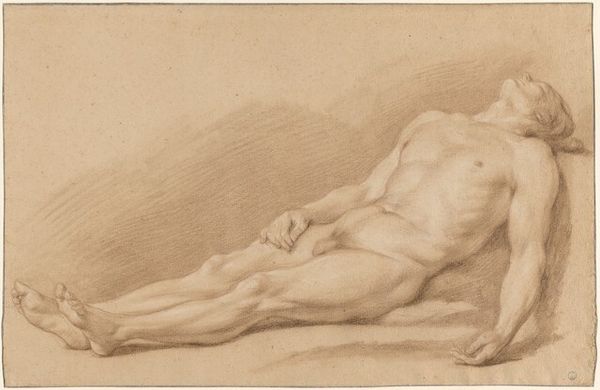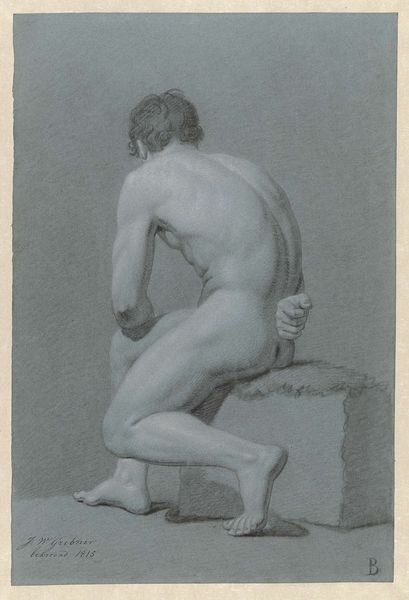
drawing, pencil, charcoal
#
portrait
#
drawing
#
classical-realism
#
charcoal drawing
#
figuration
#
pencil
#
portrait drawing
#
charcoal
#
academic-art
#
charcoal
#
nude
Dimensions: height 304 mm, width 514 mm
Copyright: Rijks Museum: Open Domain
Curator: Well, my first impression is simply exhaustion, honestly. All that classical striving...makes me want to lie down exactly like this. Editor: And speaking of classical, this is a drawing by Hendrik de Flines, created sometime in the 1780s, titled "Liggend mannelijk naakt, op de rug gezien," or "Lying Male Nude, Seen from the Back." It's rendered in charcoal and pencil. We need to see it in relation to Neoclassical trends toward idealizing and canonizing male forms, drawing inspiration from antique sculpture and a perceived 'natural' masculinity. Curator: Exactly! He's got this perfect languor down. Like he *knows* he’s embodying some ancient ideal. And that knowing is what cracks me up! The light, the shadow... even the dude’s hair looks tired of being perfect. Editor: It's certainly embedded within discourses of power and representation. I think it's crucial to note that even supposedly "objective" depictions of the body were, and are, inevitably shaped by societal norms and hierarchies related to race, gender, and class. These influenced who was considered worthy of artistic representation. Curator: Totally. Which is what makes it so ripe for a modern reinterpretation, right? I almost want to give him a slice of pizza and a remote control. Like, “Dude, chill. It’s okay to just… exist.” Editor: Placing him within the academic traditions also sheds light on this piece’s probable function as an exercise in depicting anatomical precision and idealized form, reflective of the values espoused in artistic academies of the period. Curator: You know, thinking about those academies...all those rooms full of young artists struggling to capture that fleeting perfect moment… It almost makes this pose seem less smug, more...desperate? Like, "Am I doing this right? Is this what Beauty *is*?" Editor: In a way, it speaks to the pressures artists faced to conform to dominant aesthetics, while it reveals the selective nature of art history. And reminds us about who gets remembered, who is excluded. Curator: Right! Because we’re still figuring out who gets to be considered a ‘classic’ and how we can maybe, just maybe, broaden that view. Anyway, thanks, Hendrik. You and your tired, beautiful back...you've given me a lot to ponder. Editor: Yes, let’s continue to look closely, question assumptions, and strive to have a richer understanding of art, ourselves, and the world we share.
Comments
No comments
Be the first to comment and join the conversation on the ultimate creative platform.
